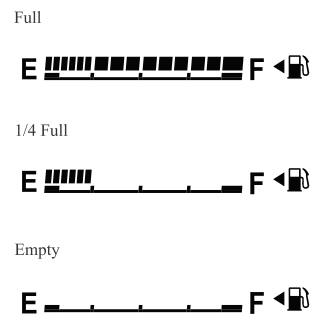Mazda CX-3: Head Restraints / Removal/Installation
To remove the head restraint, pull it up while pressing the stop-catch. To install the head restraint, insert the legs into the holes while pressing the stop-catch.
WARNING
Always drive with the head restraints installed when seats are being used and make sure they are properly installed: Driving with the head restraints not installed is dangerous. With no support behind your head, your neck could be seriously injured in a collision.
After installing a head restraint, try lifting it to make sure that it does not pull out: Driving with an unsecured head restraint is dangerous as the effectiveness of the head restraint will be compromised which could cause it to unexpectedly detach from the seat.
CAUTION
- When installing a head restraint, make sure that it is installed correctly with the front of the head restraint facing forward. If the head restraint is installed incorrectly, it could detach from the seat during a collision and result in injury.
- The head restraints on each of the front and rear seats are specialized to each seat. Do not switch around the head restraint positions. If a head restraint is not installed to its correct seat position, the effectiveness of the head restraint during a collision will be compromised which could cause injury.
 Height Adjustment
Height Adjustment
Adjust the head restraint so that the center
is even with the top of the passenger's
ears.
To raise a head restraint, pull it up to the
desired position...
Other information:
Mazda CX-3 (2015-2025) Owner's Manual: Operation of Automatic Air Conditioner
Set the mode selector dial to the AUTO position. Set the air intake selector to the outside air position (indicator light turned off).NOTE If the recirculated air position is used for long periods in cold weather or high humidity, the windshield may fog up more easily...
Mazda CX-3 (2015-2025) Owner's Manual: Categories of Child-Restraint Systems
NOTE When purchasing, ask the manufacturer of the child-restraint system which type of child-restraint system is appropriate for your child and vehicle. (Mexico) Child-restraint systems are classified into the following 5 groups according to the UN-R 44 regulation...
Categories
- Manuals Home
- Mazda CX-3 Owners Manual
- Mazda CX-3 Service Manual
- Replacing Exterior Light Bulbs
- Trip Computer and INFO Switch (Some models)
- Headlights
- New on site
- Most important about car
Fuel Gauge
The fuel gauge shows approximately how much fuel is remaining in the tank when the ignition is switched ON. We recommend keeping the tank over 1/4 full.

If the low fuel warning light illuminates or the fuel level is very low, refuel as soon as possible.
If inconsistency in engine performance or stalling occurs due to low fuel level conditions, refuel the vehicle as soon as possible and add at least 10 L (2.7 US gal, 2.2 Imp gal) of fuel. Refer to Taking Action.

